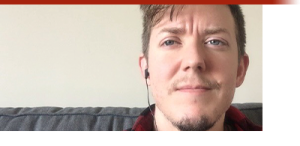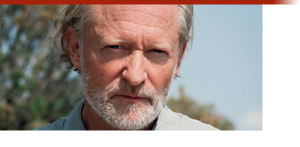Subscribe: Spotify | RSS | More
Monthly Archives: July 2023
EP 192 David Krakauer on Science, Complexity and AI
Subscribe: Spotify | RSS | More
- Episode Transcript
- JRS EP10 – David Krakauer: Complexity Science
- Darwin’s Dangerous Idea: Evolution and the Meanings of Life, by Daniel Dennett
- JRS Currents 100: Sara Walker and Lee Cronin on Time as an Object
David Krakauer’s research explores the evolution of intelligence and stupidity on Earth. This includes studying the evolution of genetic, neural, linguistic, social, and cultural mechanisms supporting memory and information processing, and exploring their shared properties. President of the Santa Fe Institute since 2015, he served previously as the founding director of the Wisconsin Institutes for Discovery, the co-director of the Center for Complexity and Collective Computation, and professor of mathematical genetics, all at the University of Wisconsin, Madison.
EP 191 Alicia Juarrero on Context, Constraints, and Coherence
Subscribe: Spotify | RSS | More
- Episode Transcript
- Context Changes Everything: How Constraints Create Coherence, by Alicia Juarrero
- Dynamics in Action: Intentional Behavior as a Complex System, by Alicia Juarrero
- “Downward Causation: Polanyi and Prigogine,” by Alicia Juarrero
- “Why Western Science and Philosophy Cannot Deal with the Relations Between Parts and Wholes,” by Alicia Juarrero
- JRS EP105 – Christof Koch on Consciousness
- JRS Currents 100: Sara Walker and Lee Cronin on Time as an Object
Alicia Juarrero, Professor Emerita of Philosophy at Prince George’s Community College (MD), is the author of Dynamics in Action: Intentional Behavior as a Complex System (MIT 1999) and co-editor of Reframing Complexity: Perspectives from North and South (ISCE Publishing, 2007), and Emergence, Self-Organization and Complexity: Precursors and Prototypes (ISCE Publishing, 2008).
EP 190 Peter Turchin on Cliodynamics and End Times
Subscribe: Spotify | RSS | More
- Episode Transcript
- End Times: Elites, Counter Elites, and the Path of Political Disintegration, by Peter Turchin
- Historical Dynamics: Why States Rise and Fall, by Peter Turchin
- War and Peace and War: The Rise and Fall of Empires, by Peter Turchin
- Ultrasociety: How 10,000 Years of War Made Humans the Greatest Cooperators on Earth, by Peter Turchin
- The True Believer, by Eric Hoffer
Peter Turchin is a complexity scientist who works in the field of historical social science that he and his colleagues call Cliodynamics. His research interests lie at the intersection of social and cultural evolution, historical macrosociology, economic history and cliometrics, mathematical modeling of long-term social processes, and the construction and analysis of historical databases. Currently his main research effort is directing the Seshat Databank project (and its offshoot, CrisisDB) which builds and analyzes a massive historical database that enables us to empirically test predictions from theories attempting to explain why and how complex human societies evolved, and why they periodically experience political breakdown.
Currents 100: Sara Walker and Lee Cronin on Time as an Object
Subscribe: Spotify | RSS | More
Professor Sara Walker is an astrobiologist and theoretical physicist. Her work focuses on the origins and nature of life, and in particular whether or not there are universal ‘laws of life’ that would allow predicting when life emerges and can guide our search for other examples on other worlds. Her research integrates diverse perspectives ranging from chemistry, biology, geology, astronomy and the foundations of physics, to computer science, cheminformatics, artificial life, artificial intelligence and consciousness. At Arizona State University she is Deputy Director of the Beyond Center for Fundamental Concepts in Science, Associate Director of the ASU-Santa Fe Institute Center for Biosocial Complex Systems and Professor in the School of Earth and Space Exploration. She is also a member of the External Faculty at the Santa Fe Institute. She is active in public engagement in science, with appearances on “Through the Wormhole”, NPR’s Science Friday, and on a number of international science festivals and podcasts. She has published in leading research journals and is an internationally recognized thought leader in the study of the origins of life, alien life and the search for a deeper understanding of ourselves in our universe.
Leroy (Lee) Cronin is the Regius Professor of Chemistry in Glasgow. Since the age of 9 Lee has wanted to explore chemistry using electronics to control matter. His research spans many disciplines and has four main aims: the construction of an artificial life form; the digitization of chemistry; the use of artificial intelligence in chemistry including the construction of ‘wet’ chemical computers; the exploration of complexity and information in chemistry. His recent work on the digitization of chemistry has resulted in a new programming paradigm for matter and organic synthesis and discovery – chemputation – which uses the worlds first domain specific and universal programming language for chemistry – XDL, see XDL-standard.com. His team designs and builds all their own robots from the ground up and the team currently has 25 different robotic systems operating across four domains: Organic synthesis; Energy materials discovery; Nanomaterials discovery; Formulation discovery. All the systems use XDL and are easily programmable for both manufacture and discovery. His group is organised and assembled transparently around ideas, avoids hierarchy, and aims to mentor researchers using a problem-based approach. Nothing is impossible until it is tried.



